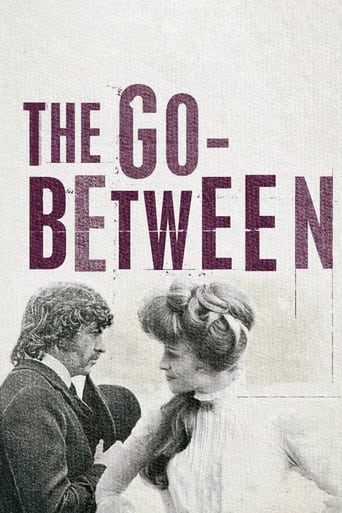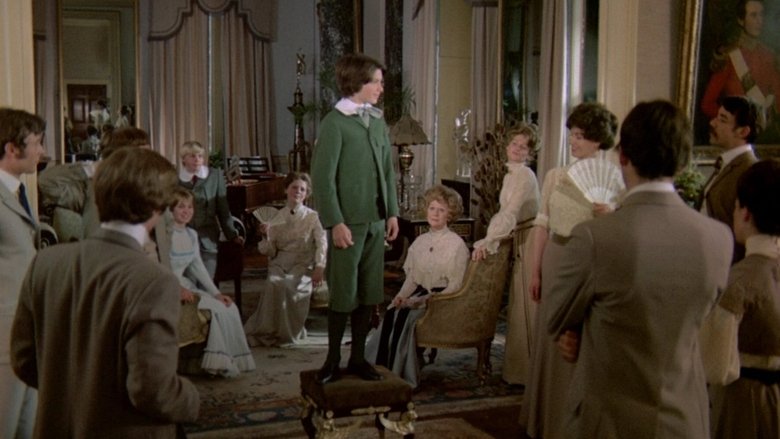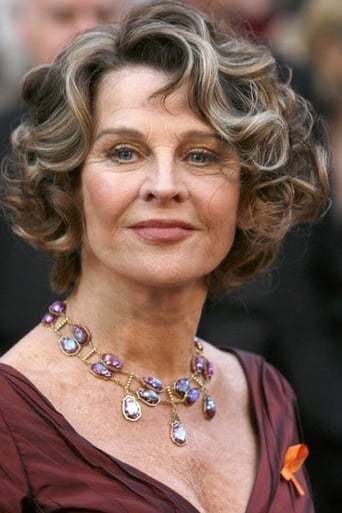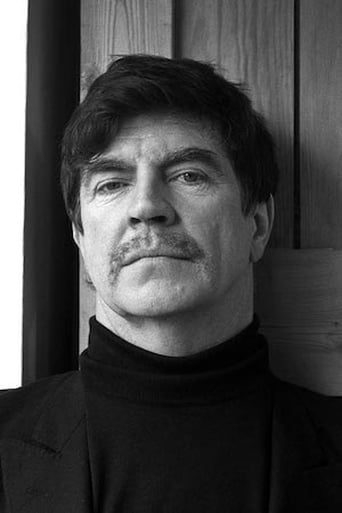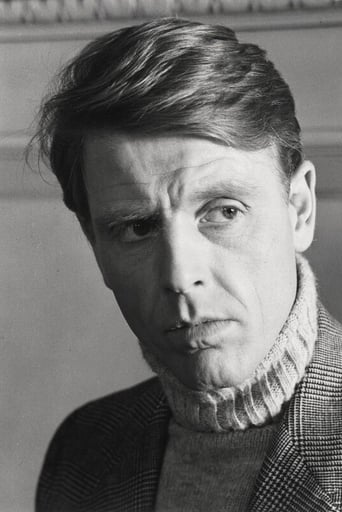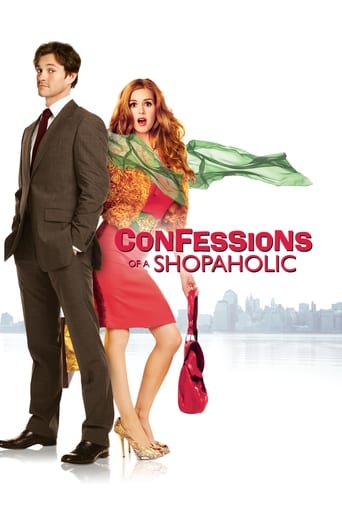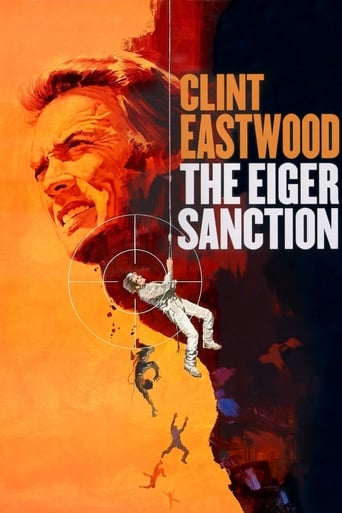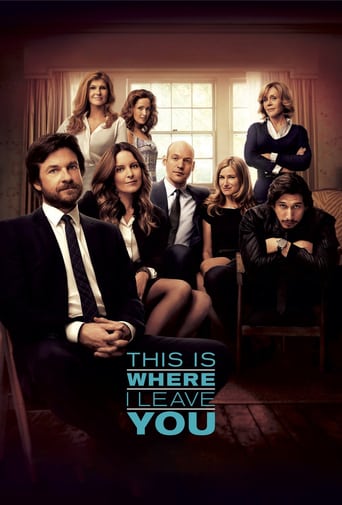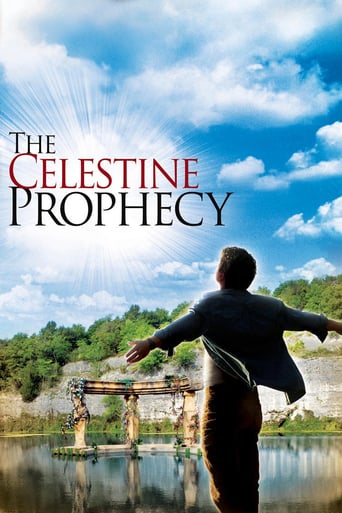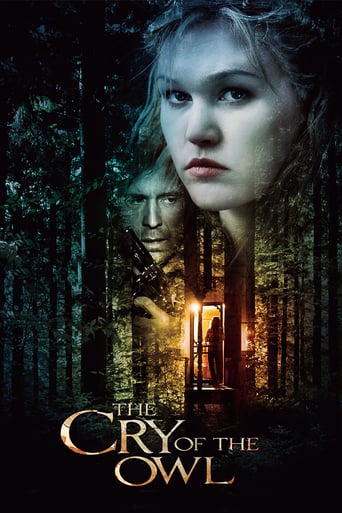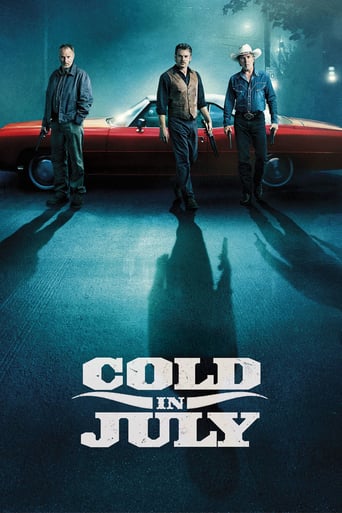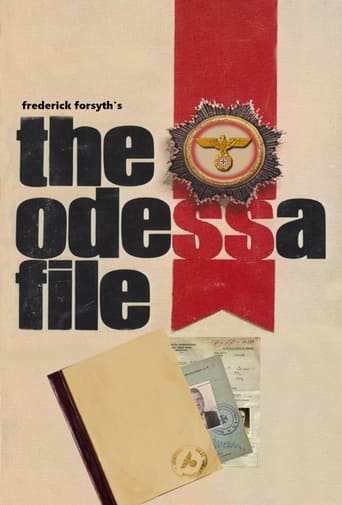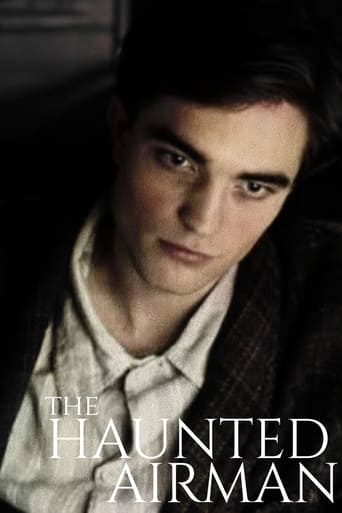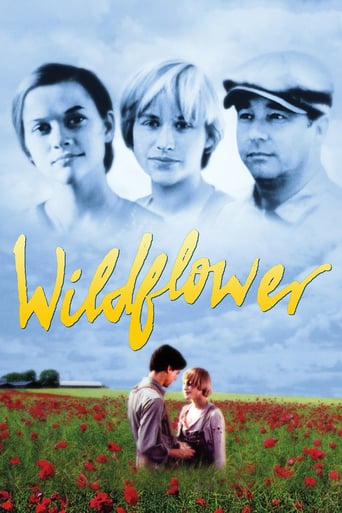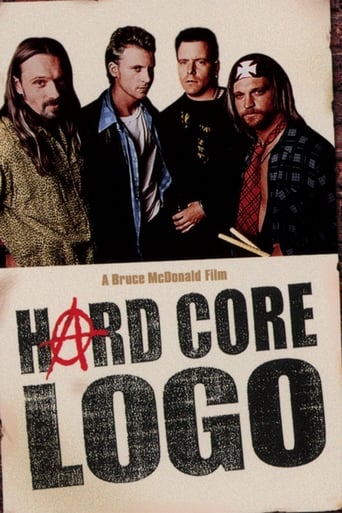The Go-Between (1971)
British teenager Leo Colston spends a summer in the countryside, where he develops a crush on the beautiful young aristocrat Marian. Eager to impress her, Leo becomes the "go-between" for Marian, delivering secret romantic letters to Ted Burgess, a handsome neighboring farmer.
Watch Trailer
Cast


Similar titles
Reviews
American screenwriter and director Joseph Losey's twenty-third feature film which was written by English playwright, screenwriter, actor and director Harold Pinter (1930-2008), is an adaptation of a novel from 1953 by British author Leslie Poles Hartley (1895-1972). It was screened In competition at the 24th Cannes International Film Festival in 1971, was shot on location in the county of Norfolk in England and is a UK production which was produced by German-born British producer John Heyman and British producer Norman Priggen. It tells the story about Leo Colston, a 12-year-old student and a kind of magician who in a hot summer of 1900 is invited as a guest to a countryside mansion called the Brandham Hall in Norfolk by an aristocratic family named Maudsley. Leo has come there mainly due to his schoolmate Marcus who is the son of Mr and Mrs Maudsley, but his initial reasons for being there changes when he notices Marcus' elder sister Marian.Distinctly and precisely directed by American filmmaker Joseph Losey (1909-1984), this quietly paced fictional tale which is narrated by the protagonist and from multiple viewpoints, draws a gripping portrayal of the moral and emotional dilemma an adolescent boy is faced with after becoming a secret messenger and the forbidden relationship between an aristocratic and affianced young woman and a tenant farmer who has to hide their romance. While notable for its naturalistic and atmospheric milieu depictions, sterling production design by English production designer Carmen Dillon, cinematography by English cinematographer Gerry Fisher, costume design by costume designer John Furniss and the fine editing by English film editor Reginald Black (1902-1992), this character-driven and narrative-driven period drama where an aging man reminiscence a pivotal year in his life when his young heart was struck by a magnificent woman, depicts an empathic and incisive study of character and contains an efficient and prominent score by French composer Michel Legrand.This romantic, suspenseful, reflective and stringently structured story which is set against the backdrop of a rural county near the city of Norwich in East England in the late 19th century, examines themes like friendship, class distinctions, loss of innocence and is impelled and reinforced by its fragmented narrative structure, substantial character development, subtle continuity, foreboding and harmonic atmosphere, graceful aura, exceptionally moving flash forward scenes and the memorable acting performances by former English actor Dominic Guard in his debut feature film role, English actress Julie Christie, English actor Sir Alan Bates (1934-2003), English actress Margaret Leighton (1922-1976) and English actor Edward Fox. An eloquent, literary and nostalgic coming-of-age tale from the early 1970s which brilliantly combines various genres and which gained, among numerous other awards, the Palme d'Or at the 24th Cannes Film Festival in 1971.As their two previous cooperation's, Joseph Losey and author Harold Pinter's third and final collaboration is a film adaptation of a novel by a 20th century British writer and an artistic character piece that examines and emphasizes the internal struggles of characters from upper and lower social classes who are either by themselves or others led into predicaments that unravels their frailty. This mysterious and condensed triangle drama which follows the memories of a main character who looks back at a faraway past that has left him scarred for life, is a timeless and masterful cinematic accomplishment.
In the early 1900s, a 12-year-old boy staying with his school-friend and his friend's family in the English countryside for the summer becomes indirectly involved in the clandestine affair between a privileged young woman and a lusty, low-class farmer. Harboring a crush on his friend's older sister, the lad is at first anxious to be her messenger, but his feelings soon sour once he realizes he's being used--as is the woman's rich, stuffy intended--in a game of love-play which he does not altogether understand. Harold Pinter's adaptation of the novel by L.P. Hartley smartly concentrates on the boy's perception of the events, although the flash-forwards in time (which culminate in an obtuse epilogue) fall rather flat. Joseph Losey directs in a clear, concise manner without too much dawdling about, building up the tension in the household with precision. Disapproving family matriarch Margaret Leighton, who sees the world through slanted, jaded eyes, has a terrifically charged moment late in the movie where she confronts the child over a letter in his pocket, and young Dominic Guard is excellent as well. The star-crossed lovers, Julie Christie and Alan Bates, have far less to work with (surprisingly), but do have superlative moments. The unvarying score by Michel Legrand becomes monotonous before long, and the production design and cinematography are disappointing, though the film has a quiet power that is unsettling. **1/2 from ****
When one hears the music from the Thomas Crown Affair, Summer of '42 and Yentl, its easy to understand why composer Michel Legrand has won three Oscars. I think for this film he had a really, really off-day. The strident piano music sounds like an attempt to harmonically illustrate the discord between the Leo's infatuation with the beautiful Marian, and the actuality of her coquettish behaviour. It's ridiculously unsubtle and becomes more and more tiresome as it repeats with almost every dramatic turn the film takes. The only other criticism is that some of flash forwards are very poorly lit and I can't see how this is for any particular dramatic effect. The cast is superb - Margaret Leighton well deserving her Oscar nomination, the dialogue is nicely balanced, the pace well-judged. Lovely film - really awful music.
Losey/Pinter's adaptation of LP Hartley's novel follows Leo, invited to spend the summer with his upper crust schoolfriend's family in Norfolk. He contracts a bit of a crush on Julie Christie's Marian (his friend's older sister) and consequently gets drawn into the awkward, tacit love triangle between her fiancée Trimingham (Fox) and masculine local farmer Ted (Bates). Losey interpolates brief, silent flash-forwards to the present day as Leo revisits the area to speak with Marian in her dotage.If one has seen, or, more pertinently, read Atonement (Joe Wright's film on Ian McEwan's book) then you'll be familiar with the themes and, in part, composition of The Go-Between. Leo divines the sexual tension and intent of the relationship between Marian and Ted but, being not only young but also uninitiated in the implicit obligations of the upper class, cannot understand why Marian is simultaneously agreeing to her union with Trimingham. Unlike Atonement, Leo doesn't wilfully interfere with the relationships. Instead he does act as a catalyst that allows them to happen and is consequently affected by the outcome - the final sequence is a dryly tragic denouement which recalls the TV interview epilogue of Atonement; only here there is no atonement to be made or had.The film is beautifully and unequivocally shot. The past may indeed be a different country, as the voice-over tells us but it's not a figment of the imagination. The acting is very good, with the exception of the younger Maudsleys who are weak. Michel Legrand's score is a cunning set of neo-baroque variations for piano, rendered oppressively rather like the society and heat. Losey's handling of the drizzled flash-forwards is a beautifully rendered conceit that really makes the film for me: wistful, English and eloquent. 7/10

